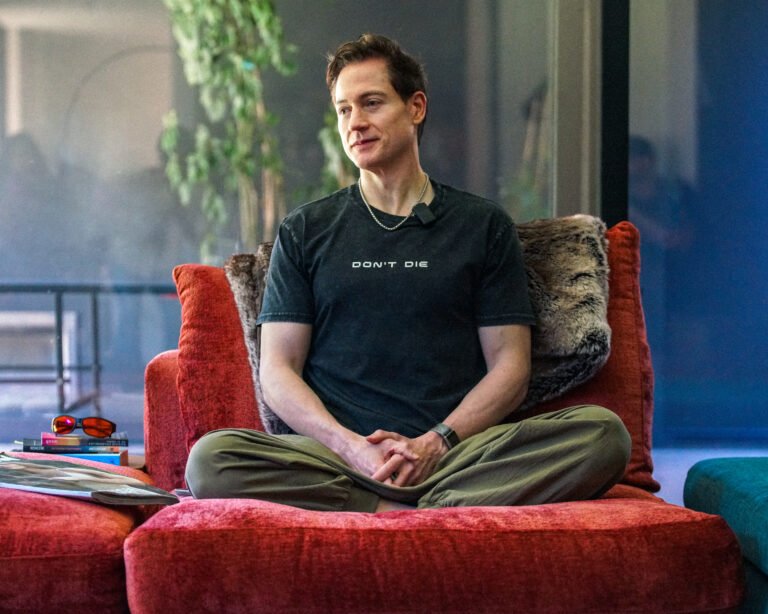The dream of immortality has fascinated humanity for centuries. From ancient legends to modern scientific advancements, the quest for eternal youth has always encountered the biological limits of the human body. But Bryan Johnson, an entrepreneur and investor from Silicon Valley, is convinced that he can surpass them. Through a rigorously optimized lifestyle, cutting-edge medical treatments, and extreme discipline, he is attempting to defy time. His obsession with longevity is at the heart of the Netflix documentary Don’t Die: The Man Who Wants to Live Forever, which dives into his daily life and reveals the sacrifices he is willing to make to reverse his biological age.
Formerly the founder of Braintree, which was acquired by PayPal for $800 million in 2013, Bryan Johnson has since dedicated his fortune to a single goal: extending human life, and more specifically, his own. Through his controversial program called Blueprint, he follows a strict routine involving hours of medical testing, a highly calculated diet, and biomedical interventions that push the boundaries of ethics and science.
His approach is based on a radical scientific view of aging. Every aspect of his existence is quantified and optimized: his sleep is closely monitored, his diet is calculated down to the gram, and his physical activity is tailored to the slightest fluctuations in his metabolism. But what generates the most attention—and criticism—are his medical experiments. He subjects himself to plasma transfusions from young donors, a technique that, while promising, remains controversial in the scientific community.
In the Netflix documentary, Johnson speaks candidly. He tackles without hesitation the effects of his lifestyle on his health, including rarely discussed topics such as erectile function and mental health. “People have been chasing the fountain of youth since the dawn of time, but this is the first time in human history where you can genuinely imagine stopping aging,” he says. An audacious statement that fuels both fascination and skepticism.
While his results are impressive—some tests suggest he has the biological age of a much younger man—they don’t have unanimous support. Many experts remain cautious about the long-term viability of his practices. Some highlight that the obsession with total control over his body could have negative psychological effects, while others question the true scientific value of his methods.
But Bryan Johnson is undeterred. He views his journey as a real-world experiment, a living laboratory for the sake of science and innovation. “If it works on me, it will work on everyone,” he says with unwavering conviction. For him, immortality is no longer a myth but a matter of time, innovation, and discipline.
So, is Bryan Johnson a visionary ahead of his time, or simply a man fighting a deep fear of aging? One thing is certain: his journey challenges our relationship with time, science, and what truly defines youth.

